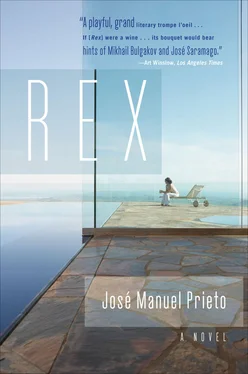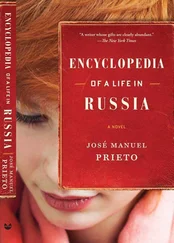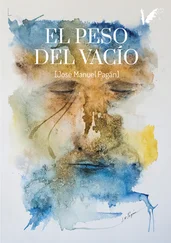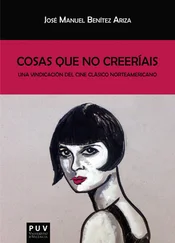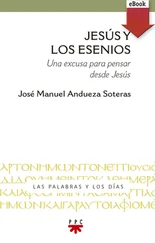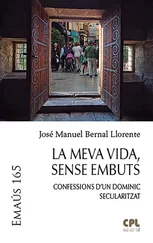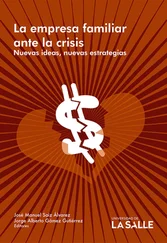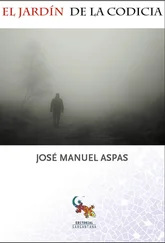What country, what democracy, incipient or adult, knowing what I knew, having meditated and reflected upon the question, with the knowledge or data my eyes had gathered from your bearing as royal boy, would not want you as its prince? Forty-two years of Pax Augusta, a richer and fuller life in the force field of your eyes.
The disk of the Vinteuil Variations in your hands, the music by which you’d sought to pacify your father’s insomnia, this composition — by the greatest of musicians! — you had learned to love and appreciate as I did. I believed I saw this, I thought this. But immediately, when I saw what disk was actually in your hand, I understood what your advice was, how to overcome the test, and skillfully free myself from the barbed jaws of that betrayal. Your advice was to enter further into the music, these new versions, beautifully commented on: to culminate, in short, in a great dance.
Better a dance than the passive adoration of the Pool, far wiser to set them all dancing, so that they might better apprehend Vasily’s cosmic importance, his very beautiful wife, the new Imperial House of Russia.
The way you approached the silvery stereo and pushed the play button, the way you turned toward me with the majesty and propriety of a king’s son, requesting:
“Please dance, Master Psellus.”
8
And this Mourdant, the eternal bad guy, paled dramatically beneath his mask, as on the night when he’d heard me recite whole passages of the Book from memory, long chapters, the text incarnate.
Need I explain to you why? The reason for his pallor? Certainly not, of course not — right? You know it and Batyk knew it, too, the instant he saw me move toward the center of the room, waltzing smoothly, arms extended toward your mother. His delicately tubular ears sensed it, understanding what I was preparing to do even before he himself did. Distancing myself here, suddenly, from the Book — not a single dance in the Writer! Understanding how much better an inaugural ball than a simple banquet, a party with exhausting word games, bons mots, the gathering of many pages. On the wings of an inaugural ball, how easily we could glide into Russia. All the pitfalls of legitimacy, the relevance of our project, popular support, neatly sidestepped. Your mother’s understanding of the situation: not the slightest injury to her royal dignity, on the contrary. The way she awaited me with arms outstretched, stepped flawlessly into my spin, smoothly twirling backward, dancing as no sovereign of any European house could have.
New dance steps, a goldmine of new steps blossoming from within me with perfect ease, from forearm to arm, arm to finger. Redeemed of my wickedness, my low passion for your mother, firmly grasping the whole matter of the restoration. The Russian people bedazzled by the prodigy of this dance, our triumphal entry into Moscow to sit on the czars’ empty throne guaranteed. Even if, when the music began, the reediness of the voices were perceived, even if it were discovered that the new royal pair weren’t as good as the terrific production values made it seem, the miracle of the lighting, the luxury of their clothing … A product! Natural talent is unnecessary. I could, if I liked, place a monarch in every European country, or a single one over all Europe, whatever I’m asked to do. And it wouldn’t be an undemocratic operation: as we poll public tastes, study tendencies, publish ratings, the monarchs would end up no less democratically elected than if voted in … And, yes, maybe he was a bit on the chubby side, the one playing the king, but my God! What an ostentation of wealth! What money! How intelligent he is, that man! Me, that is, walking straight toward the audience from the back of the stage to bow, dressed soberly in black. From Cuba — did you know? — brought expressly from Cuba for the occasion. Such expense! And not in vain. A success. Undoubtedly.
Enough to reign for three hundred years.
Or like the victory of Augustus at Actium, or that other coup de theatre in India or Asia Minor by Nicephorus Phocas, who had himself publicly levitated to impress Liutprand, bishop of Cremona, I told you about this already, in 949 (no small thing, this effect of liberating oneself, annulling terrestrial gravity!). All the pomp and circumstance of Westminster, of the Hall of Mirrors (in Versailles), but in the air, pure play of lights. Broadcast live, seen by millions of viewers. And the videos and the “behind the scenes” footage; a whole twelve-hour program on the new Imperial House of Russia. The only authentically exotic royal house, the most long-suffering of them all, an ideal candidate for relaunching, eighty years after its forced defenestration.
9
Regressing back to Babylon, to a Babylonian apprehension of kingship, however much we may resemble modern men, whatever we fast food eaters may look like. Changing the cut of the suits, widening and narrowing the lapels, still looking like pencil pushers and wives of pencil pushers, some of the women pencil pushers themselves, but with an inner transformation, the fine substance of a sense of hierarchy in their souls. Conscious of the many rungs that separate them, the abyss between the simple construction of their bodies and the more formidable fabric of a king. The futility of all movement understood, all pride set aside: just men, you know? What better thing than this? What better than to dance?
Me with the millions, finally. God knows I hadn’t stopped dreaming about that money and God knows, too, how much it surprised me to discover it glittering there in the garden grass when I had told myself: you won’t get it. Never. My failure with the butterflies, the fiasco of my education of Linda, which I’ll tell you about someday. All that, in its moment, drove me across certain countries, uncontrollably or as if uncontrollably, not only toward the sea, as I told you, but also toward the reflection of the golden stone. And I had closed my eyes in resignation, saying to myself: an illusion, you’ll never get it. I had accepted this and lowered myself to giving a few classes, earning a little money (never as much as I’d imagined), until the day I saw the stone in the garden and everything changed, the world turned upside down as I looked at it.
Nelly and Vasily dancing there among the azure sparkle of those final days of the century, in perfect awareness that those years were blue. I’d felt this, too, I had sensed it and adjusted myself to blue. Not gray, as in the Writer’s life, or some shade of red, the inexplicable reddish orange of my childhood. The blue of those years that still have not gone by, your mother’s metallic skin and hair gleaming among ribbons of blue. OK, fellows, God would say, floating overhead, the best you can do, the wisest: blue. Precisely what I had in mind for those years.
10
Vasily gravitating in the middle of the room with a slow and majestic air, augustly. Absorbing all the light that rushed toward him, all the objects and the party guests spinning around him. Bathed by the brilliance of the stone. Large as an outcrop of rock or a colossus. His mass augmented, but also, like a neutron star, infinitely dense. The party flowing around him, gliding downward with the smooth tension of a curtain of water as he watched, spellbound, approaching for a closer look, then understanding that the curtain, seeming to flow as it fell, was revolving around him in iridescent bands, slower and slower.
He gave an involuntary start of surprise. I saw it appear on his face, observed it from afar, unable still, in that moment, in the heat of the dance, to understand or explain to myself the expression of wonder that rose to the surface of his eyes. He understood himself, comprehended himself as an object of almost infinite mass beneath which space warped, around which the hours grew still.
Читать дальше
